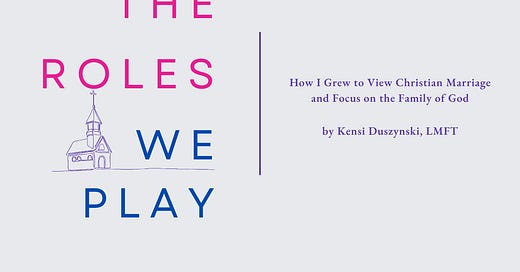It’s been 20 years since I first read the types of relationship books I thought would inform my future career as a marriage counselor—books that were Christian, available everywhere, and unbeknownst to me at the time, theologically complementarian.
When I say complementarian, I mean loosely or strictly based on the concepts of male headship and female submission, set within a framework of gender complementarity meets a “you complete me” theology of marriage. I’m talking about the belief, as defined in Recovering Biblical Manhood and Womanhood, that a mature man is to be every woman’s benevolent and paternalistic hero; that a mature woman is to be every worthy man’s nurturing cheerleader and exuberant recipient of his leadership and strength. I’m talking about relationship books that urge us, as brothers and sisters in Christ, to believe that we were made to live in a contradictory state of hierarchical equality (to God and us be the glory).
It took me two degrees, training in evidence-based methods, and a specialization in Christian couples therapy to understand just how problematic belief in complementarian principles as unquestionably “biblical” can be to Christian marriages. Not just abusive relationships. Not just the worst marriages. But for the relatively fine and stable marriages, too.
We have nearly 40 years through which to observe the effects of the creation of Complementarianism in the home and in the church—and the effects haven’t looked very good. Not for women. Not for men. Not for marriages. Not for churches.



